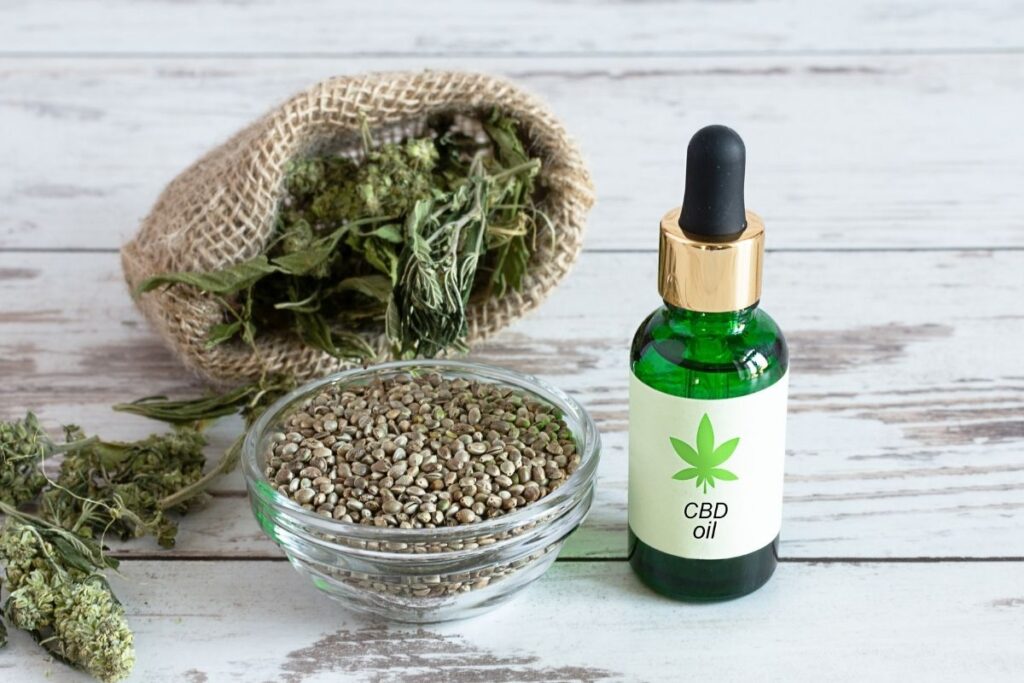The legalization of cannabis and the demand for cannabidiol has greatly impacted the horizon, especially for those in the landscape looking to improve their bedroom game. It also helps that CBD products are free from psychoactive components, making it a game-changing option for people who do not want to have their state of mind altered.
With this boom, it is not so surprising to see the abundance of CBD topical products on the market. Besides the usual creams, many of these items are now being marketed and geared towards improving the sex life and overall sexual wellness and intimacy of couples. Given this explosion of products, it can be surprising to some that these CBD oil items have a barrage of applications in the bedroom.
Individuals looking to improve their performance in the bedroom and elevate the mood can turn to cannabidiol in times of need. While this compound is usually associated with treating a host of other afflictions, such as chronic pain management, inflammation, and even skin conditions, many people remain unaware of its benefits for sex and libido.
The Science Behind CBD and Sex

The human body is home to its very own endocannabinoid system with is cannabinoid receptors. These receptors are present not just in the reproductive organs of the body, but also in the very sexual tissues. When ingested, cannabidiol can activate these receptors and stimulate the system accordingly.
Once the receptors of the said system are activated and engaged, the body responds in several ways. These include being an anti-inflammatory product as well as a means to prevent convulsions.
Ways Cannabidiol Affects Libido
Sexual pleasure and libido can be affected by a number of factors. These include pain, anxiety, and other psychological conditions. Taking in cannabidiol can help provide relief from these symptoms, and by extension, aid in reducing anxiety and pain.
In doing so, CBD can not only calm the muscles and ease the stress and anxiety that a person is feeling, but it can also provide a feeling of warmth and relaxation. When this happens, this may prove effective in boosting the libido and sexual involvement of the person in question.
With the capacity of CBD products to reduce pain, experts in the field believe that women who suffer from dyspareunia, otherwise known as a disorder for painful sex, can help women enjoy their time in the bedroom. There are also some studies that show that it can aid in the treatment of erectile dysfunction among men by relaxing the blood vessels and promoting blood flow.
Taken together, this can lead to a willingness to participate in sexual activities and have more pleasure when being touch, both of which can greatly affect their experience and orgasmic abilities of both men and women.
CBD Products to Use in the Bedroom

Cannabidiol’s reach in the bedroom alone has reached new heights. With this, it is certainly possible that more couples and individuals alike can explore the benefits it can offer and bring some excitement and aid in their sex life.
For one, individuals who suffer from poor lubrication may take lubricants made with CBD. Not only can this help with pain management and inflammation, but this also tends to promote heightened sensitivity and increased stimulation of the body’s lubrication.
Others who seek to pleasure themselves and their partners may otherwise turn to massage lotions. Topical CBD oil products are great for heightening sensual pleasures, especially with constant touching and massaging involved.
Making sex more exciting is even possible through consuming edibles. The very act of feeding each other can already be seen as an act of intimacy. Partnered with CBD-infused chocolate or treats that are believed to have aphrodisiac-like qualities, it can definitely make for some good time in the bedroom.
The Bottom Line
There is no one way to make CBD work for you and your partner. With these aforementioned options, couples and individuals can incorporate cannabidiol into their sex life in different ways.
Medical Disclaimer:
The information provided in these blog posts is intended for general informational and educational purposes only. It is not a substitute for professional medical advice, diagnosis, or treatment. Always seek the advice of your physician or other qualified healthcare provider with any questions you may have regarding a medical condition. The use of any information provided in these blog posts is solely at your own risk. The authors and the website do not recommend or endorse any specific products, treatments, or procedures mentioned. Reliance on any information in these blog posts is solely at your own discretion.







